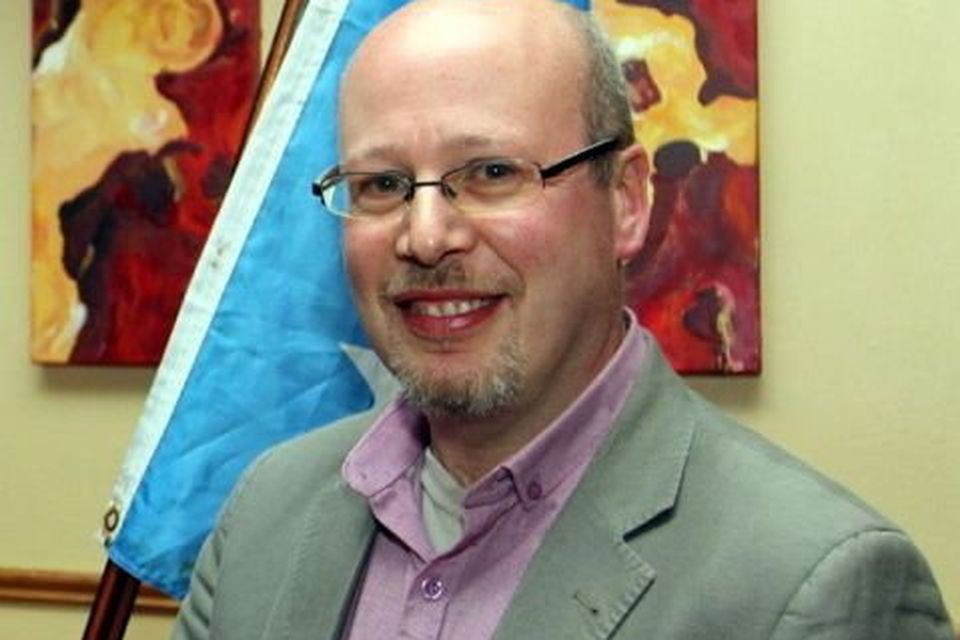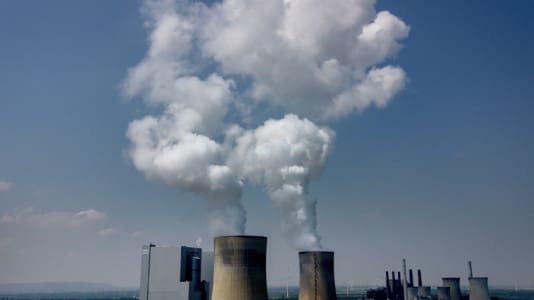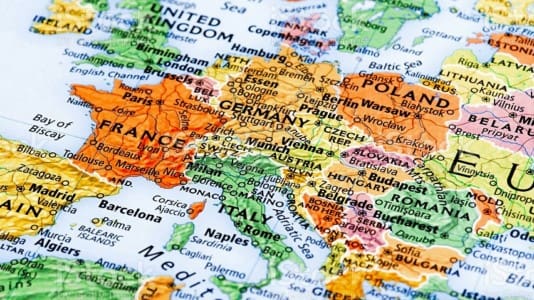An Irish politician has called out the government’s immigration and asylum policy, declaring the system not fit for purpose and suggesting a number of his colleagues agree with him in private but are scared to go public with their concerns for fear of being labeled “far right” or “racist.”
Sinn Féin councilor Fionntán Ó Súilleabháin, who sits on Wexford County Council, voiced his concerns during a council meeting to discuss the future of Slaney Manor in the area, a grand estate and former wedding venue that was purchased in April by a company contracted to provide migrant accommodation in Ireland.
The estate is expected to be used imminently as an emergency migrant center, accommodating up to 213 people.
[pp id=64051]
Some councilors lamented the lack of public consultation over the plans; they suggested that local residents have been silenced and their concerns over changes to their local community are being sidelined.
“A lot of communities feel unheard and like they have no control of their local areas,” Cllr Ó Súilleabháin told colleagues. “They’re told they don’t have any say. Aren’t we supposed to have some say over what happens in Wexford? People feel that decisions are being imposed upon them.”
He explained that 20,000 people arrived under schemes organized by the International Protection Accommodation Services (IPAS) last year, “and the main country of origin is Georgia, which is not deemed a country where there’s a safety risk. We’re being fed this narrative that everyone is fleeing war and persecution and nobody wants to be seen as being against that.”
The Sinn Féin councilor explained that 40 percent of new arrivals in recent times have come to Ireland without any formal documents, “so we know nothing.” He further suggested there is “a lot of emotional blackmail going on and we have no say in the matter.”
[pp id=67608]
Following the meeting, Cllr Ó Súilleabháin issued a staunch defense of his comments, calling the government’s asylum policy a “cash cow” that has enabled scores of undocumented migrants, many of whom have arrived in Ireland “for economic reasons,” to claim asylum.
“They are now disingenuously and emotively classed as ‘refugee.’ This then shuts down any rational and legitimate discussion or questioning of this dysfunctional system.
“While politicians will agree in private that the system is a farce, they are terrified to call it for what it is due to a fear of ridiculously being labeled ‘far right’ or ‘racist.’”
He compared the current public discourse where genuine concerns are silenced to “a sketch out of Father Ted,” a popular Irish sitcom that revolves around a group of priests who live together in rural Ireland. In one episode, news spreads around the community that the leading character is a racist after innocuously impersonating a Chinese man with a lampshade.
Discontent over the government’s liberal immigration and asylum policy has been brewing in Ireland for some time, becoming more intense in recent months after a record level of new arrivals last year.
In March, government data obtained via a Freedom of Information request revealed that 84 percent of asylum seekers whose applications had been rejected over the past five years had not been deported and currently have an “unknown status.”
Despite deportation orders being issued upon the rejection of the applications, 3,887 of the 4,631 individuals had not left the country, either voluntarily or involuntarily.
[pp id=70515]
Earlier this month, Mattie McGrath, an independent MP called for a referendum on immigration after recent polling revealed that 75 percent of Irish people think the country is taking in too many refugees.
“This is total open borders. We have 12,000 homeless ourselves. And the money we are spending on this situation is unbelievable,” he told the Gript media outlet.
“Under the surface, people are being silenced. Cancel culture. The national media is just disgraceful, they’ve all bought into this disastrous policy of flooding our country, changing our culture, and not having space or room, and not looking after properly the genuine refugees taken in.”
He also warned against incoming reforms to the country’s hate speech legislation, which could further prevent individuals from speaking out on politically sensitive issues over fears of recrimination.






